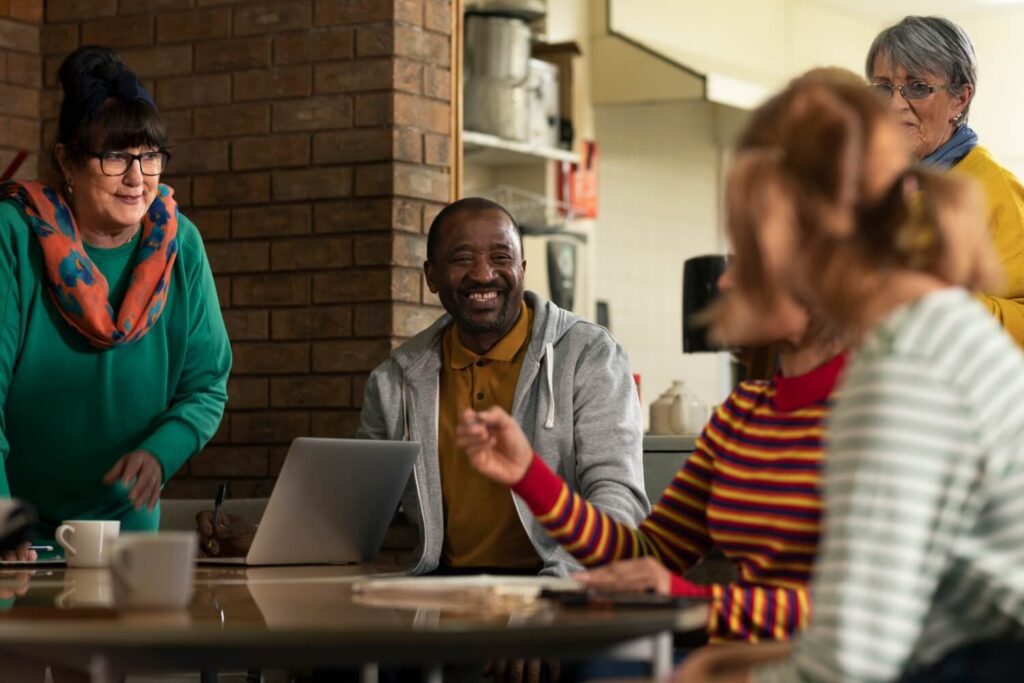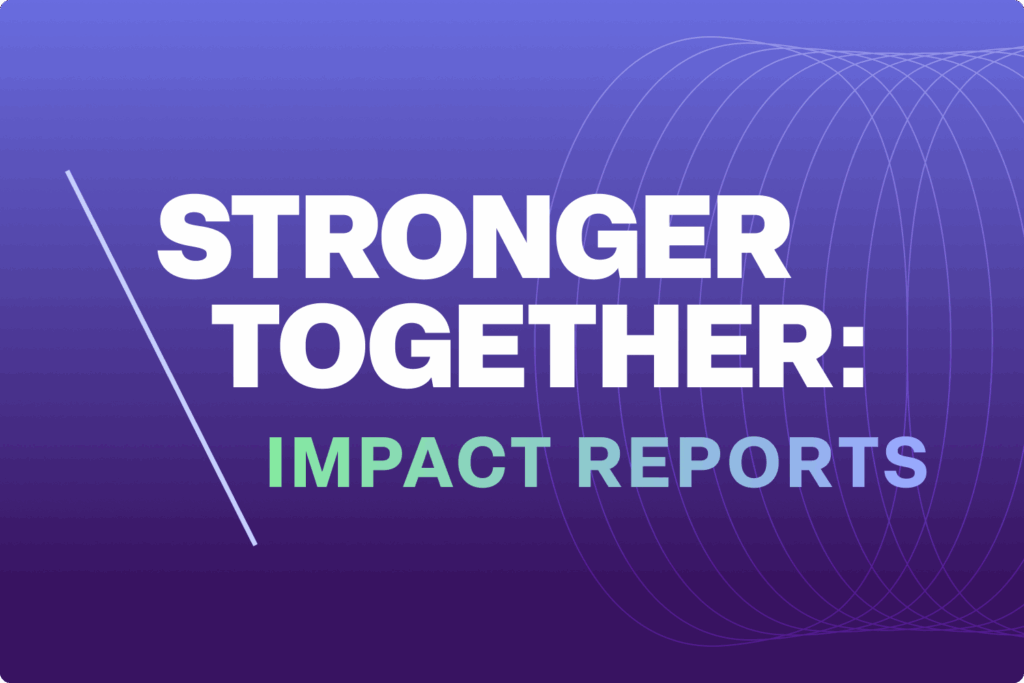Finding a new life after substance use disorder
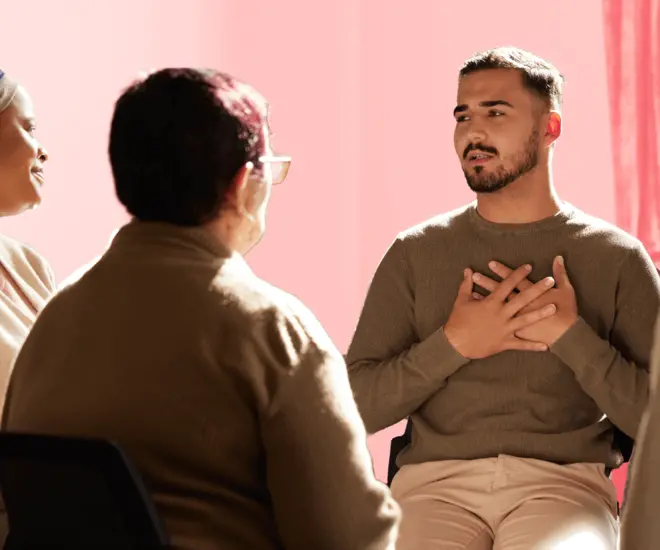
Overview
Creating connection, saving lives
For Drew Debter, seeing people graduate from The Foundry Ministries’ substance use disorder programs is especially gratifying because he knows what they’ve been through. Drew’s first introduction to The Foundry was as a participant 13 years ago. He is now a program director with the organization, a certified recovery support specialist, and an ordained minister.
“We see people so broken and hurt,” Drew says. “I love seeing someone come back from a place where addiction had taken everything; they get back to their relationships with their family and with God, and they know they have that support.”

Rooted in Christian faith, the Alabama-based nonprofit is dedicated to helping people overcome life controlling problems such as substance use, homelessness, mental health disparities, and generational poverty. The Foundry provides low-or-no-cost long-term residential substance use disorder recovery services and support via four campuses in the Birmingham area.
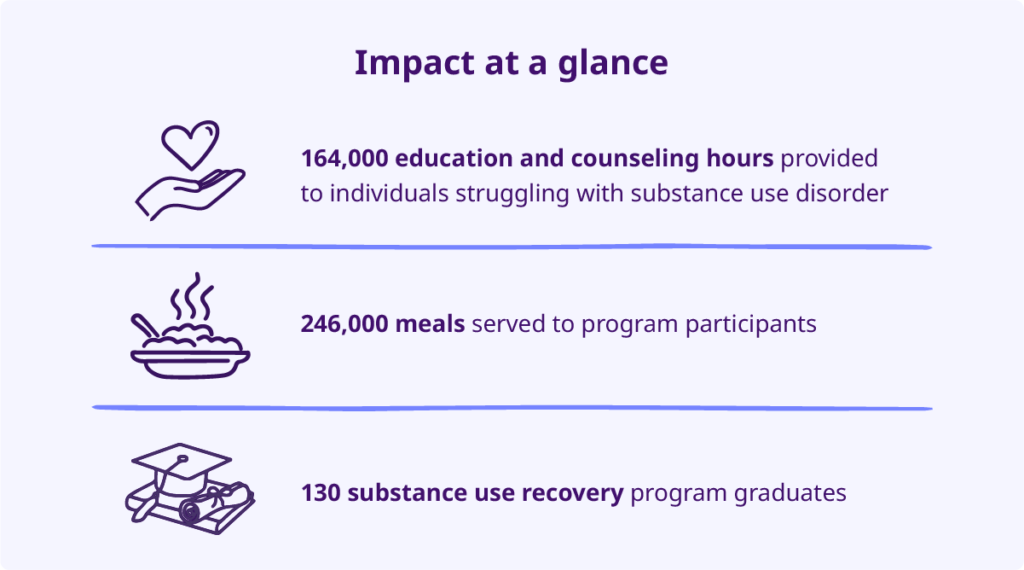
Challenges
Substance use disorder on a massive scale
Brandon Lackey, The Foundry Ministries’ chief program officer, began working in recovery services as a volunteer 24 years ago and assumed his current role in 2015. Over his decades of work, he’s seen many changes both in the organization and across the community.

“Society has changed, drug culture has changed, generations have different and competing values, and religious services (or the perception of them) have changed, and not always for the better,” Brandon says. But he notes that advancements in technology have helped make accessing treatment easier. The organization now offers drug screening through an app, making the process more convenient for anyone with a smart phone. “Our most recent program renovations represented many of these changes because we want to remain relevant, relational, and in a position to advocate for people in need of better recovery services and for recovery communities,” he says.
One of the biggest barriers to The Foundry’s work is simply the scale of the country’s drug problem. Brandon notes more than 105,000 people will die of a drug overdose this year, and 1,000,000 have died since the beginning of the opioid crisis.
Of course, The Foundry is trying to prevent as many of those deaths as possible. “Nearly 15% of our missing workforce and tax base is directly related to persons struggling with opioid use disorder,” Brandon says. “Every aspect of our society is impacted.”
Solutions
Wrap-around resources rooted in community
The organization currently provides residential recovery programs and offers counseling, case management, employment readiness, education, and aftercare to participants. The holistic approach to substance use disorder has proven effective, helping individuals address all the stressors in their lives and establish supports that keep substance use at bay. In fact, more than 130 people graduate from The Foundry’s programs, and the nonprofit provides hundreds of thousands of counseling hours and meals.
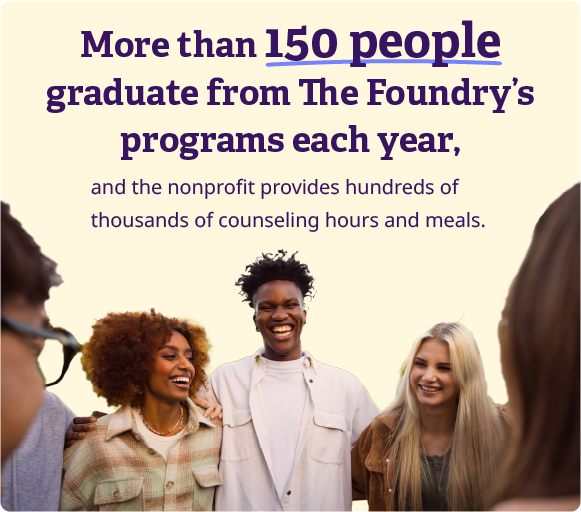
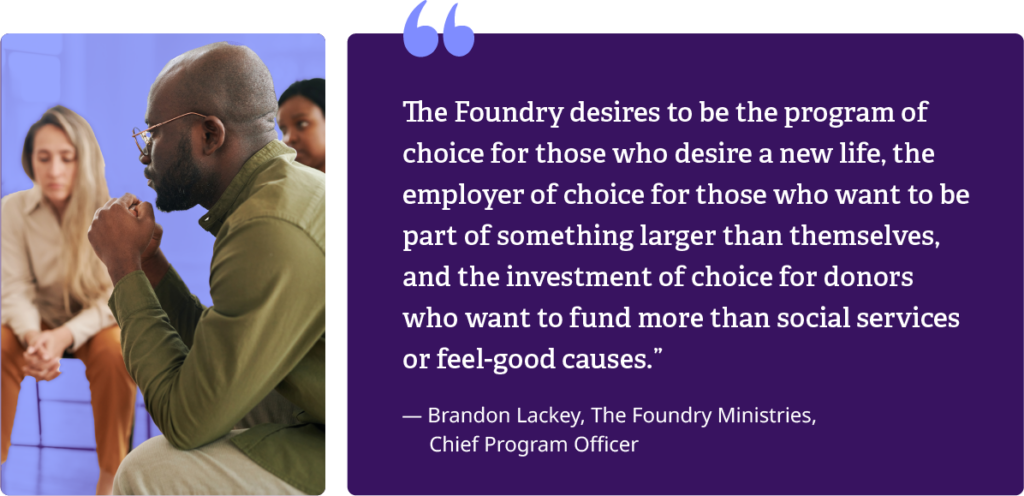
“Our reach is national, and we want to partner with stakeholders who support and value successful outcomes as we look toward the next 50 years,” Brandon says. Bonterra’s technology will play a significant role in this effort, enabling The Foundry to gather accurate data about its programs and leverage that information for fundraising and other purposes.
Accurate data delivers resources
The organization relies on Bonterra Apricot to inform its decision process and enable leaders to make smart choices about resources, programs, and fundraising. For example, the case management system provides the organization with important feedback from participant surveys about their life before and after The Foundry.
Brandon says one survey question asks participants to denote how they felt when they began The Foundry program and how they felt after completing it. The vast majority of respondents choose sad/depressed, fearful, or angry as their starting state. “The ‘after’ response, though, is mostly love, joy or peace,” Brandon says.
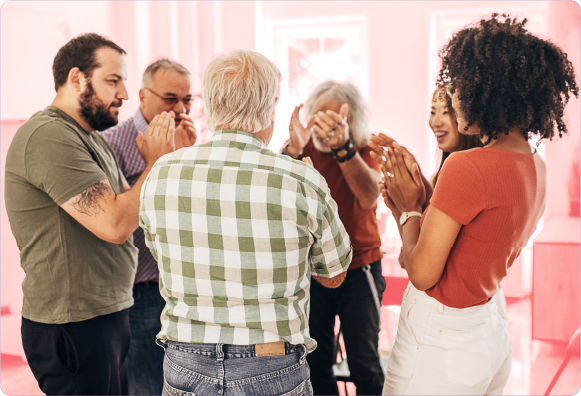
Having data to back up the powerful stories of Foundry participants is essential. It also enables the organization to garner essential funding that powers its programs and expands its reach. For instance, Brandon said Apricot nearly paid for itself when The Foundry needed to gather information for a grant request within one day.
“Bonterra provided everything the Foundation needed within 10 minutes, and we picked up a check for more than $20,000.00 the next day,” Brandon says. “The same Foundation now funds scholarships for than 40 of its neediest citizens into our program every year—a welcomed annual investment of $50,000.00 because we can provide such detailed and timely statistics.”
Impact
The Foundry expands to help even more
As The Foundry looks ahead, the organization aims to raise increased awareness around the issues that plague the community and how evidence and faith-based recovery programs offer unique solutions. Their plan is to impact and support even more program participants as they navigate their recovery journey and beyond.
“It’s all about relationships and not thinking of only yourself,” Drew says. “Plugging into the community, being in a group, and getting through it together.” By leveraging community, resources, and support, The Foundry continues to help people overcome their life-altering problems and turn their hopelessness into hope.
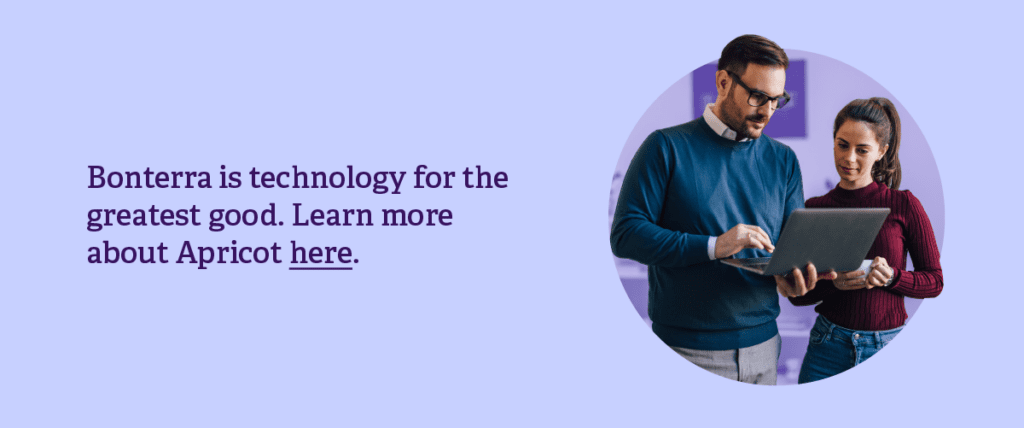
Work with Bonterra

